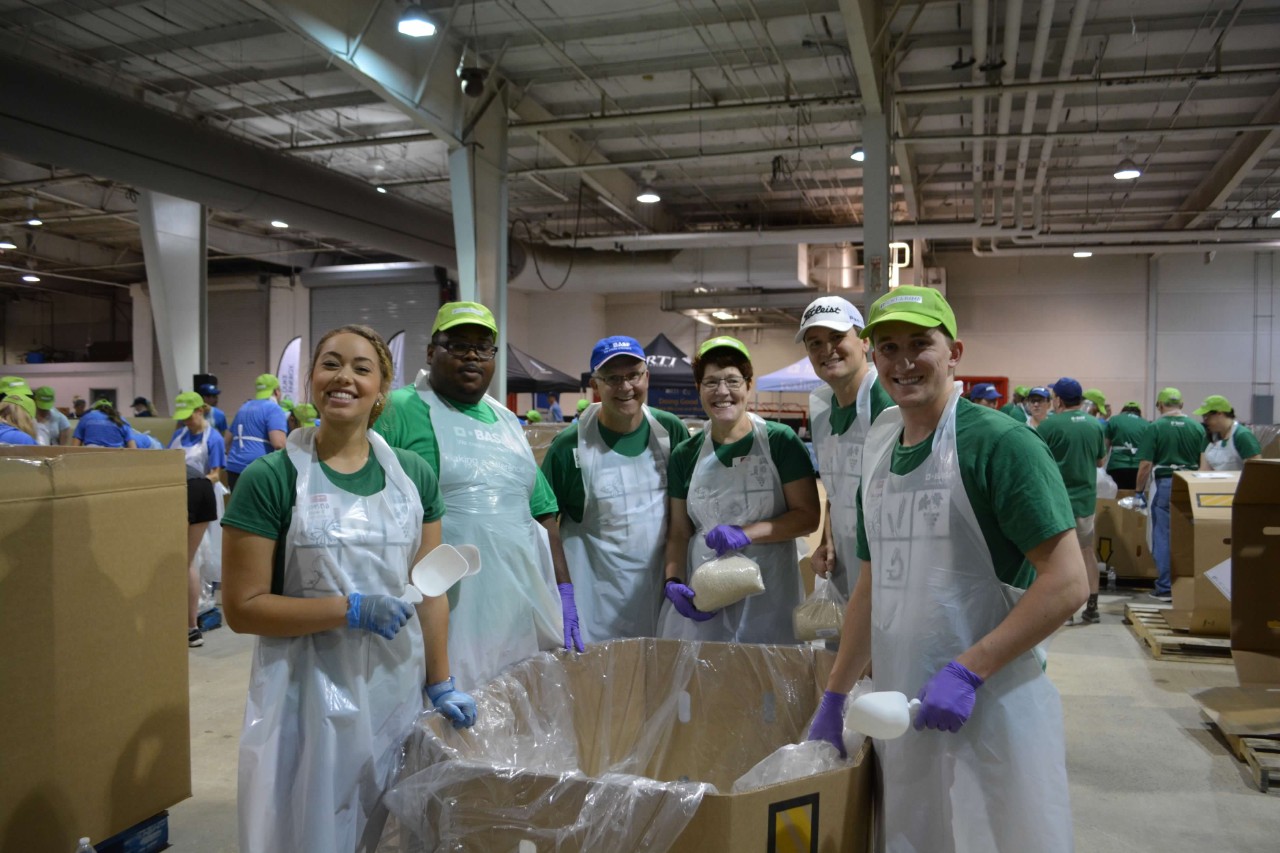The Triangle Community Must Work Together to Fight Hunger
By Paul Rea and Peter Werbicki

Food insecurity in the United States continues to hold steady at its highest-ever rate.
According to Feeding America’s The Impact of the Coronavirus on National Food Insecurity in 2020 & 2021, one in nine people in our nation faces hunger. And the issue has only worsened throughout the COVID-19 pandemic.
Hunger knows no boundaries. It’s present in every community every day, including right here in our beloved Triangle region.
The previously mentioned report shows that 42 million Americans, including more than 13 million children and 7 million seniors, don’t know where or when they’ll get their next meal. Unfortunately, these rates are disproportionately higher among minority communities.
The Food Bank of Central & Eastern North Carolina (the Food Bank) is a nonprofit organization that’s provided food for our friends and neighbors facing hunger in 34 counties in central and eastern North Carolina for more than 40 years. The Food Bank is an affiliate member of Feeding America, the nation’s leading domestic hunger-relief charity.
The Food Bank works across the food system to provide access to nutritious food that nourishes families, children, and seniors – individuals across all age ranges, from diverse backgrounds, with circumstances that may be temporary or more long-term. Through partnerships, education, and programs, the Food Bank empowers communities to overcome hunger, creating an environment where all North Carolinians thrive.
In terms of total food distributed, the Food Bank ranks in the top 15 nationally among 200 Feeding America food banks and first in North Carolina, serving more than 750,000 people and providing more than 115 million meals last fiscal year.
September is Hunger Action Month, but it’s important to remember that we can all make a significant difference in the fight against hunger any time of the year. COVID-19 shed light on an issue we’ve known was there—so many members of our community are living one health crisis, one missed paycheck, and one grocery store trip away from needing to use the Food Bank network. Never before has the work of hunger relief been so important.
The record amount of food the Food Bank was able to distribute came at a time of record need and was made possible through the power of partnerships. Volunteers, staff, and donors play a vital role in the fight against hunger and ensuring continued operations throughout the year.
The partnership between BASF Agricultural Solutions North America and the Food Bank is an excellent example of what can be done to make a positive impact and inspire change.
In 2019, 150 BASF employees volunteered more than 350 hours at the Food Bank, which yielded more than 140,000 meals packed. In 2017 and 2018, BASF employees volunteered for events such as Sort-A-Rama and Yam Jam. Between these two events, about 190 BASF employees volunteered approximately 490 hours each year.
BASF also has conducted food and funds drives to aid in the cause, and the company’s initiatives also have helped to amplify the message about hunger here in the Triangle community.
As a leading agricultural company dedicated to helping farmers feed our growing population, BASF’s involvement with fighting hunger exemplifies the company’s values and its commitment to a sustainable future.
According to the United Nations, one U.S. farm feeds 155 people annually in the U.S. With the expected increase in the global population, the world’s farmers will have to grow abut 60% more food than what’s produced now. Farmers play a critical role in ending the hunger crisis, and BASF will continue to help farmers put food on everyone’s table.
During these challenging times, it’s especially important to support non-profits like the Food Bank, so adequate assistance is provided for those who need it most. Our goal is to inspire other businesses and individuals to get involved with the fight against hunger by:
- Providing individual food donations
- Conducting company-wide food drives
- Giving individual financial donations
- Holding corporate fund drives
- Volunteering
- Serving on the board of directors or advisory committees
While much has been accomplished in the fight against hunger, there’s still plenty more work to do. BASF and the Food Bank will be front and center helping to get that work done.
Visit https://foodbankcenc.org/ today to learn more about hunger in central and eastern North Carolina. And get involved to help fight hunger any way you can.
(Paul Rea is senior vice president of Agricultural Solutions North America for BASF, and Peter Werbicki is president/CEO of the Food Bank of Central & Eastern North Carolina.)
